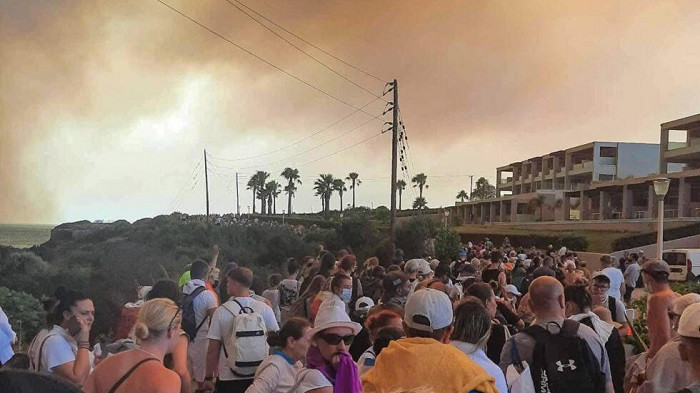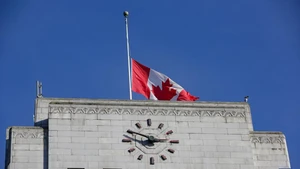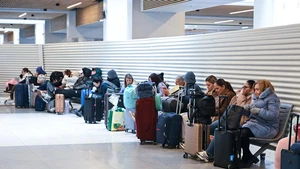Tourism is the main driver of Greece's economy which emerged from a debt crisis in 2018, and Rhodes, the ninth-largest island in the eastern Mediterranean Sea, is a popular holiday spot.
The blaze broke out on July 18 in central Rhodes and fanned by strong winds, the flames spread to the eastern and southern coast, an area with many beach resorts. Greece said it carried out the largest evacuation ever undertaken in the country.
More than 20,000 tourists and locals were forced to flee homes and seaside hotels.
Greek Prime Minister Kyriakos Mitsotakis told Britain's ITV on Wednesday that the wildfire affected 15% of Rhodes and that the situation is "back to normal" now but authorities "understand that it caused some inconvenience for visitors."
"For all those whose holiday was cut short as a result of wildfires, the Greek government in cooperation with local authorities will offer one week of free holidays on Rhodes, next spring, the next fall, so that we make sure they come back to the island and enjoy its natural beauty," Mitsotakis said.
Mitsotakis said that wildfires in the Mediterranean are not unusual but climate change has increased their intensity.
Greek authorities also said on Wednesday that 45 buildings have been damaged on the island, according to an initial assessment of the Rhodes blazes' impact.
















